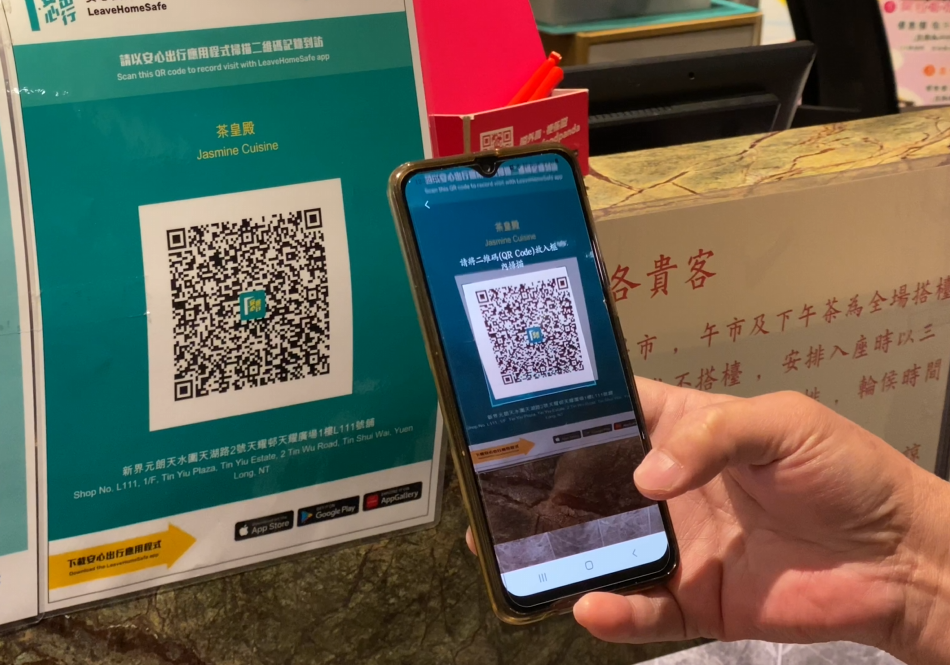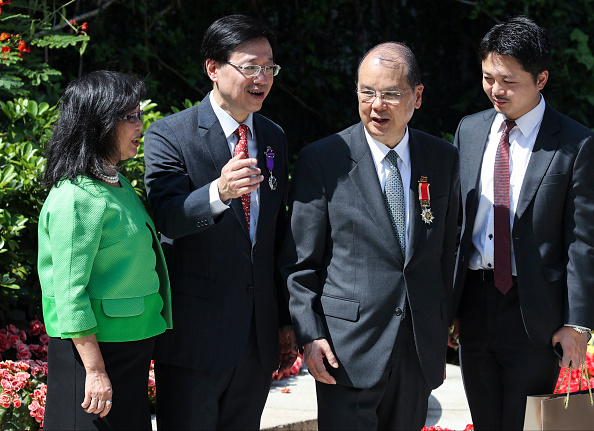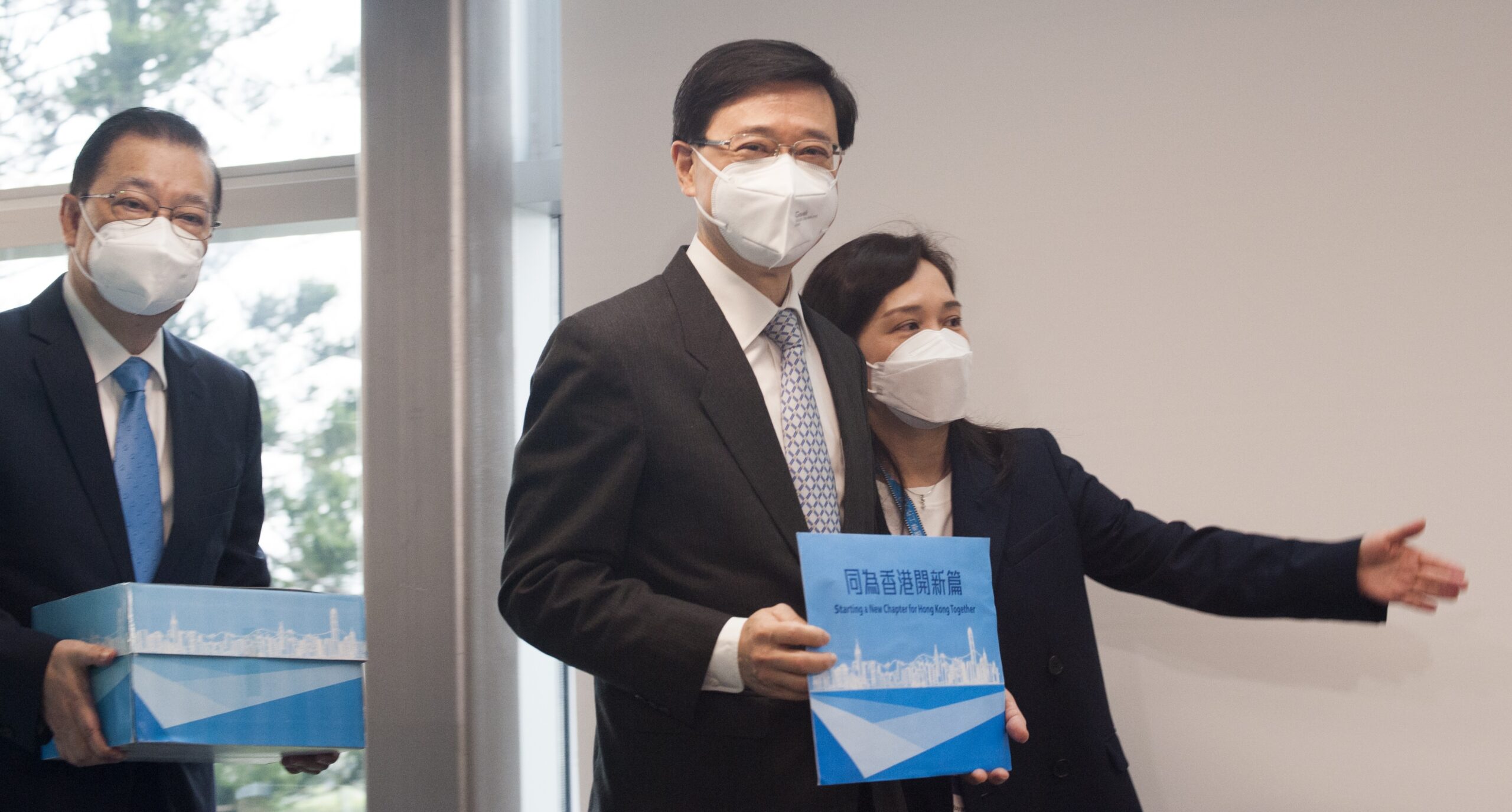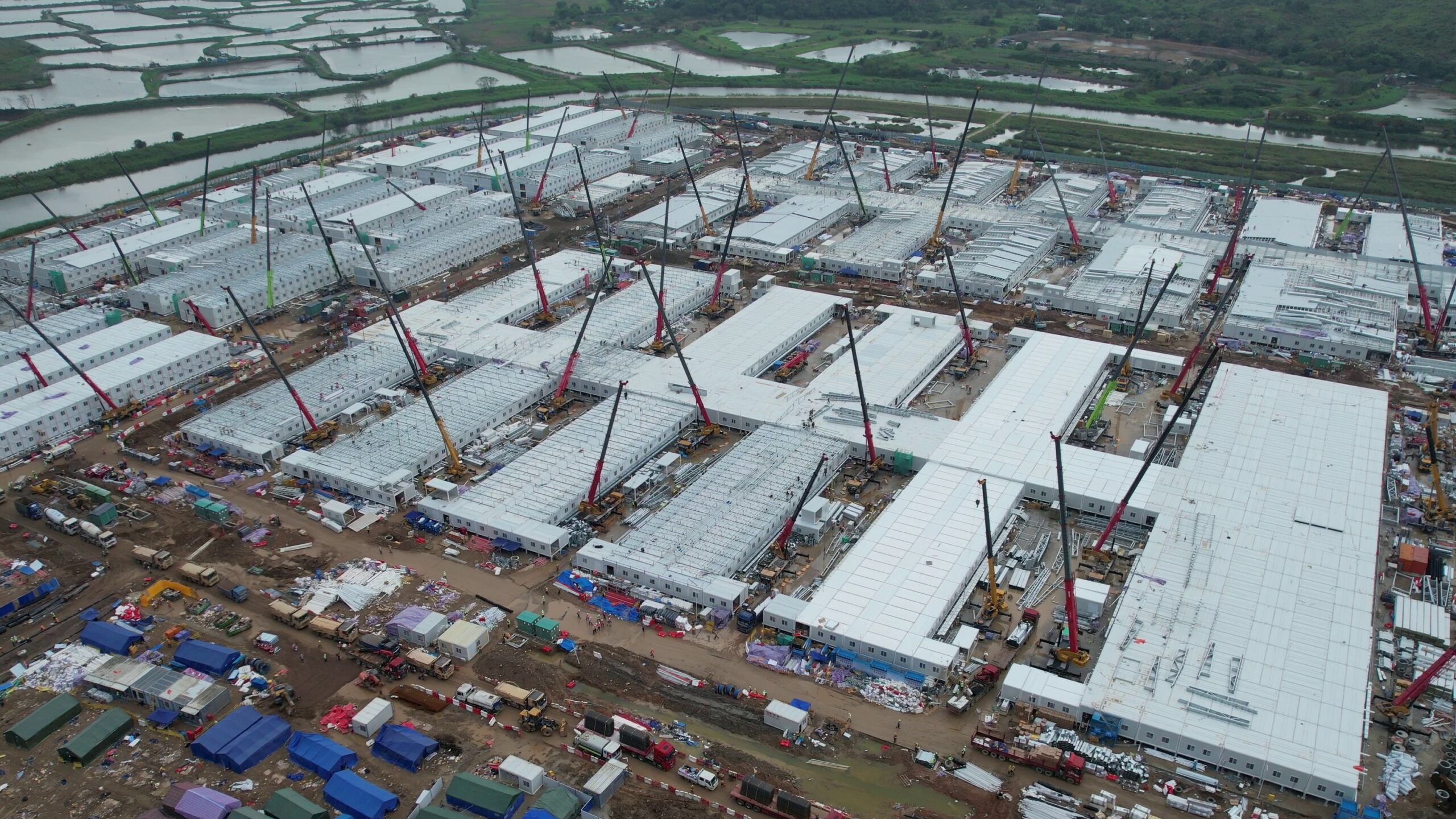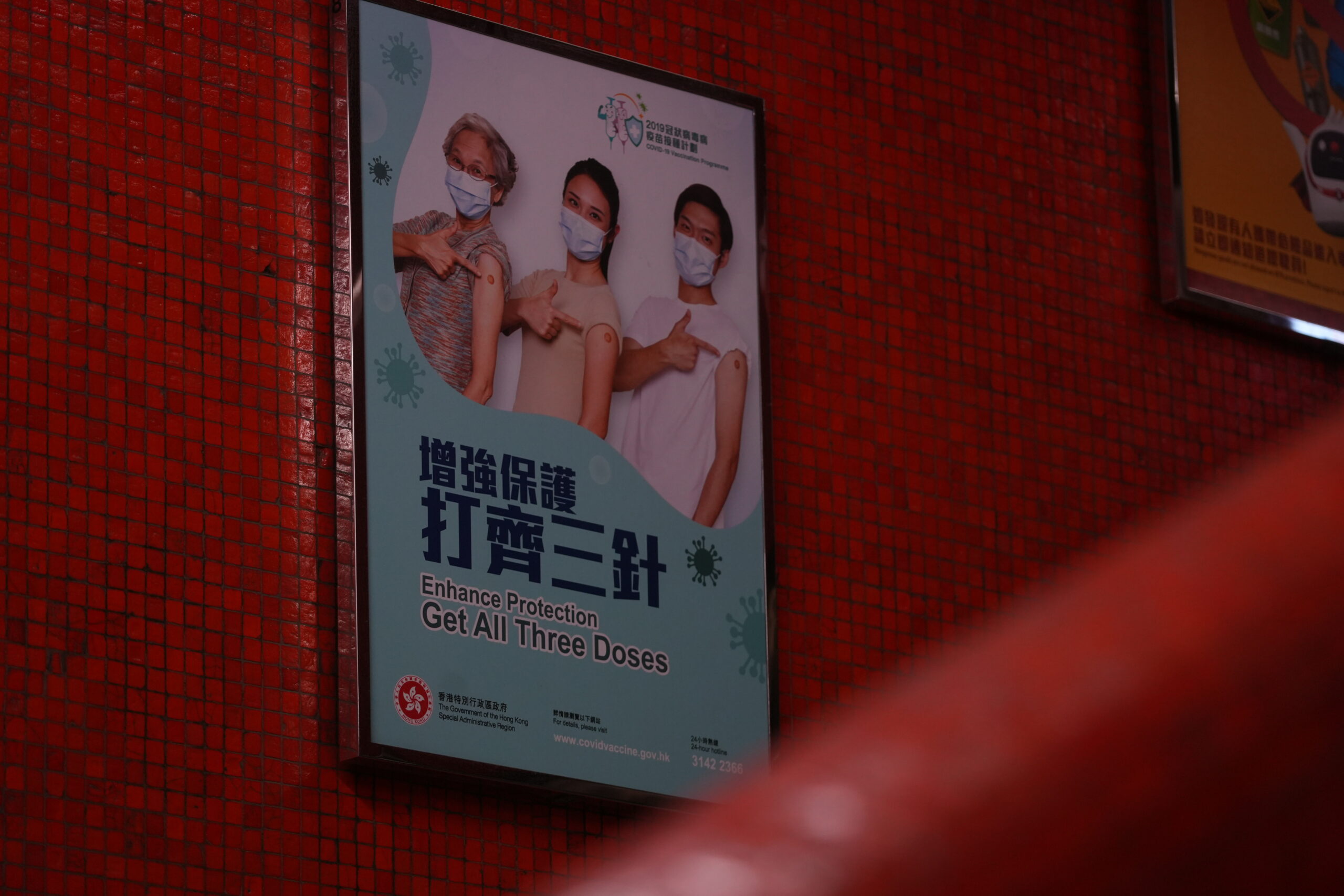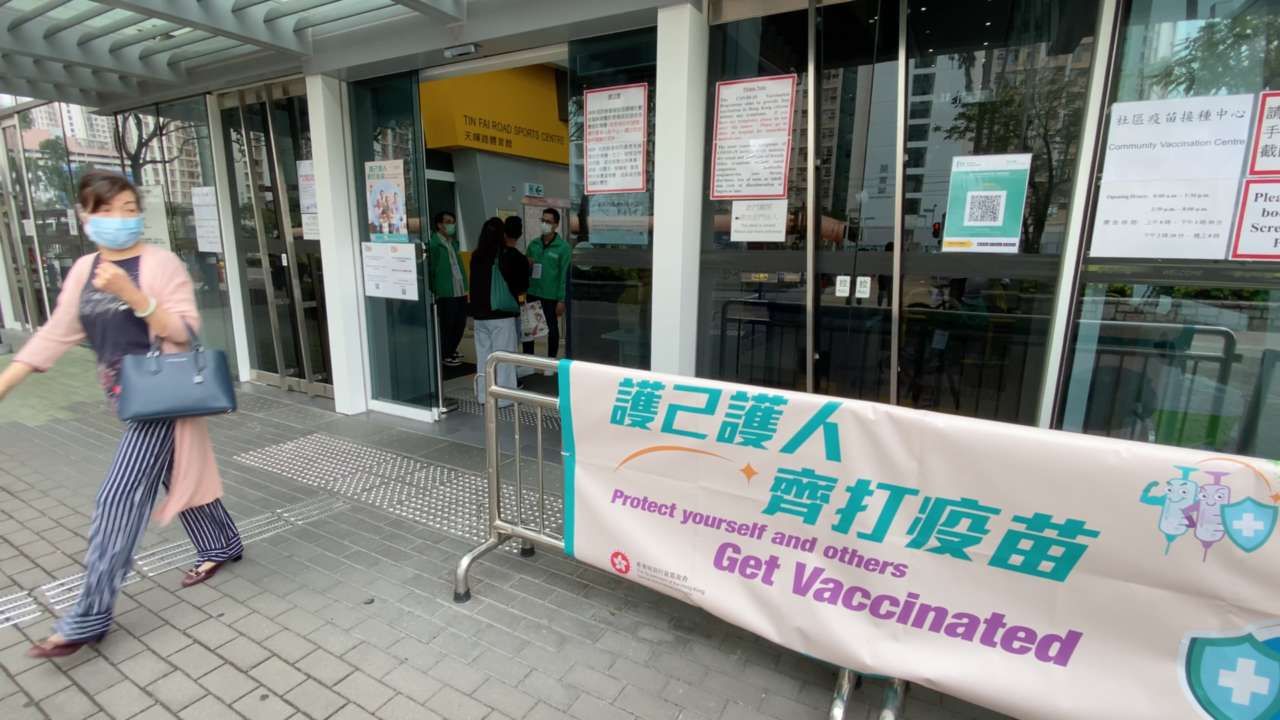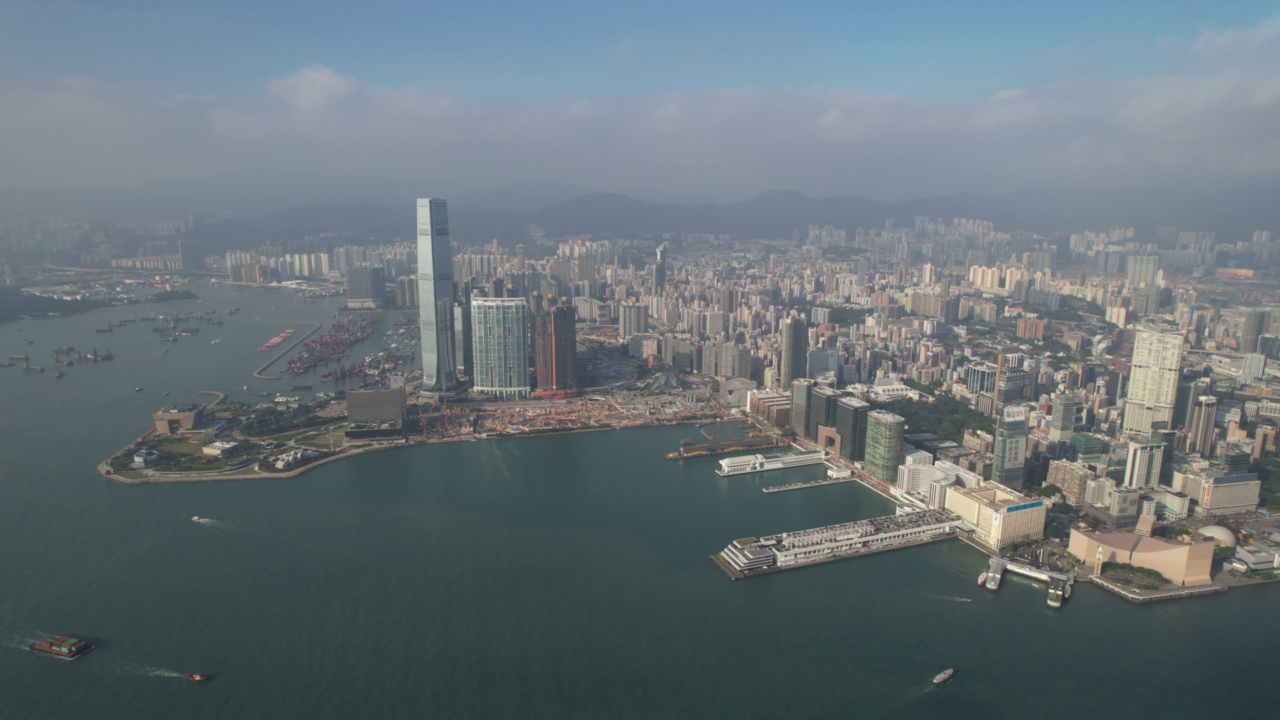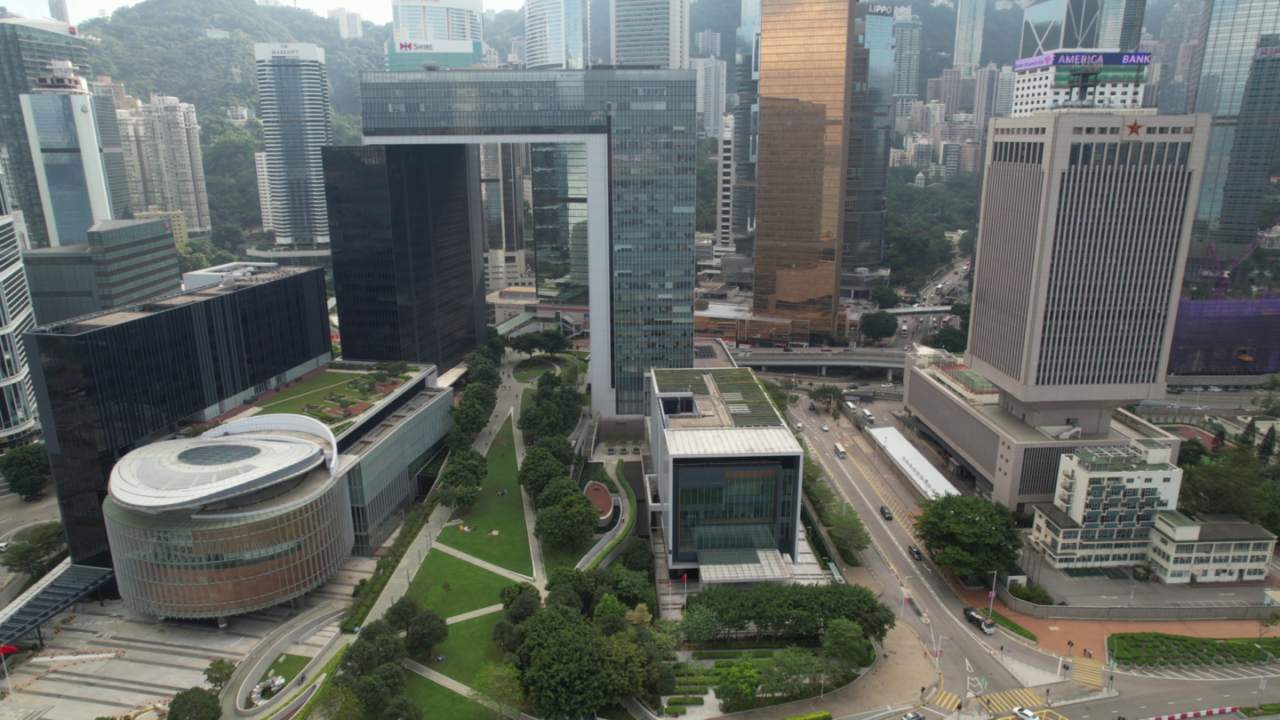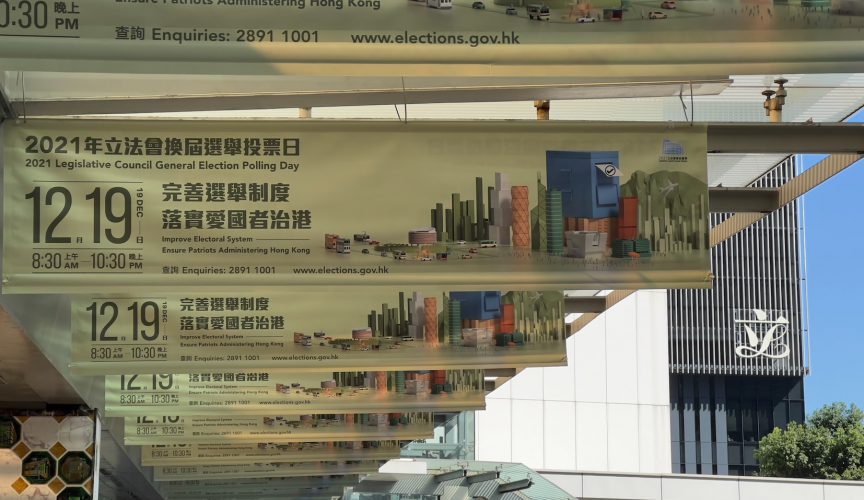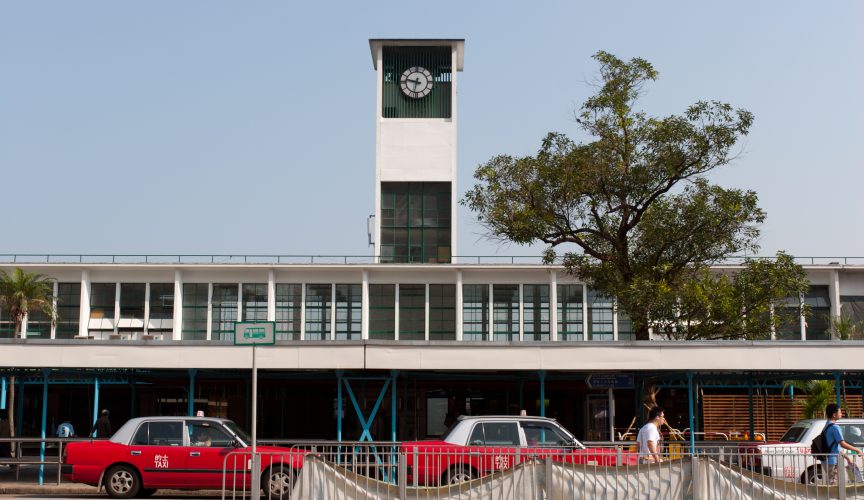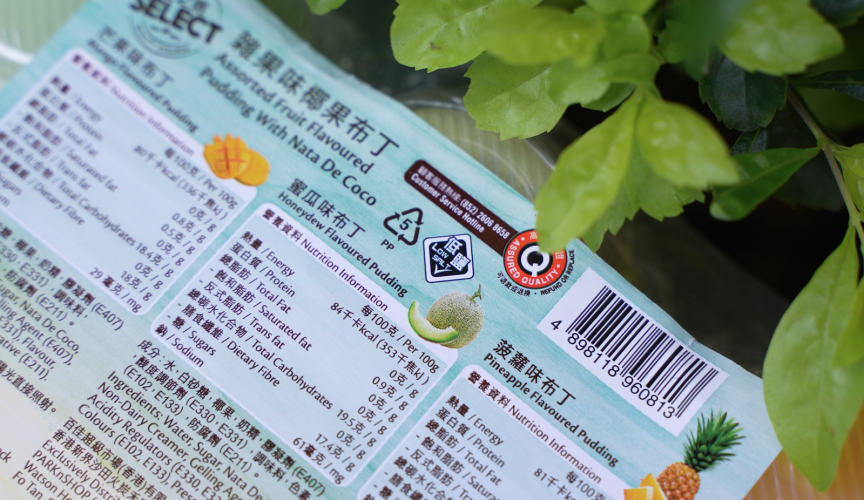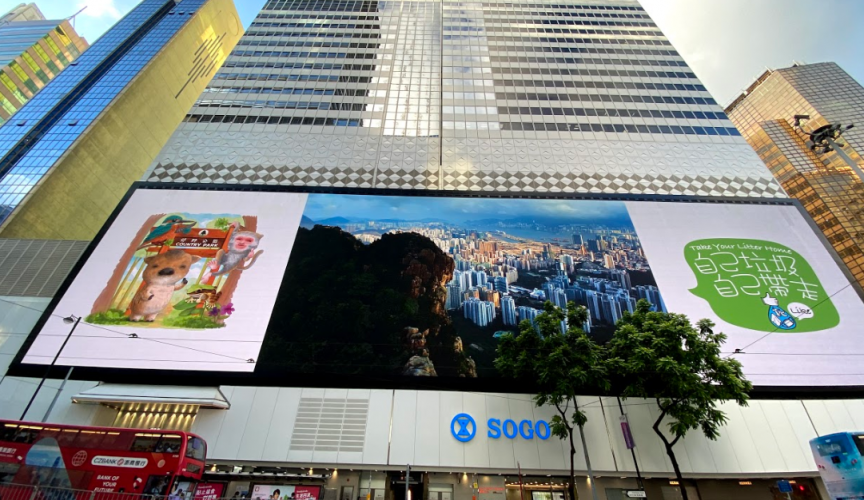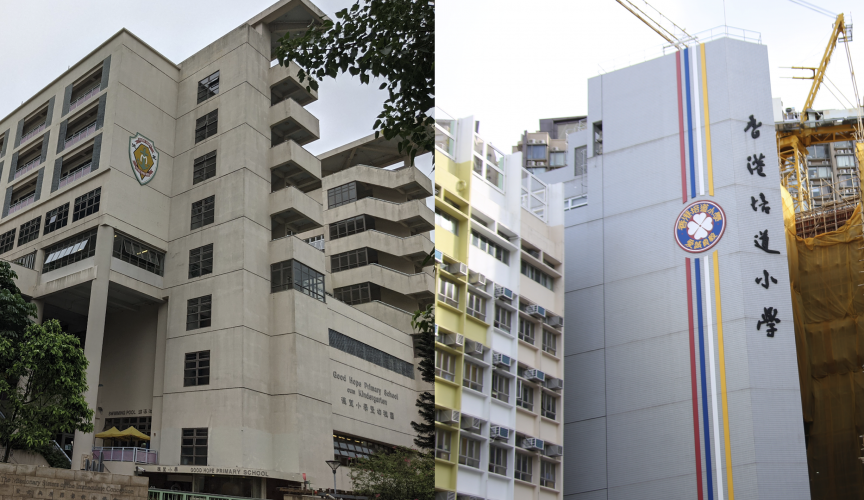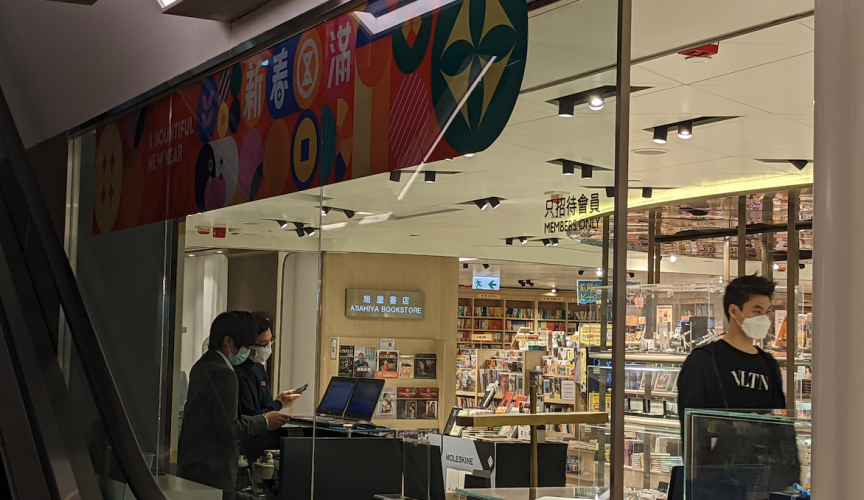Once-missing bookseller Lam Wing-kee revealed more details on his detention in mainland China
In a 30-min interview with the FactWire on June 20 at the Legislative Council Building, Hong Kong, once-missing bookseller Lam Wing-kee revealed more details on his detention in the mainland China. It was a long day for the 61-year-old former manager of Causeway Bay Books on Sunday as he was interviewed by more than 20 media, including the BBC, AP, AFP, mostly on one-on-one basis.
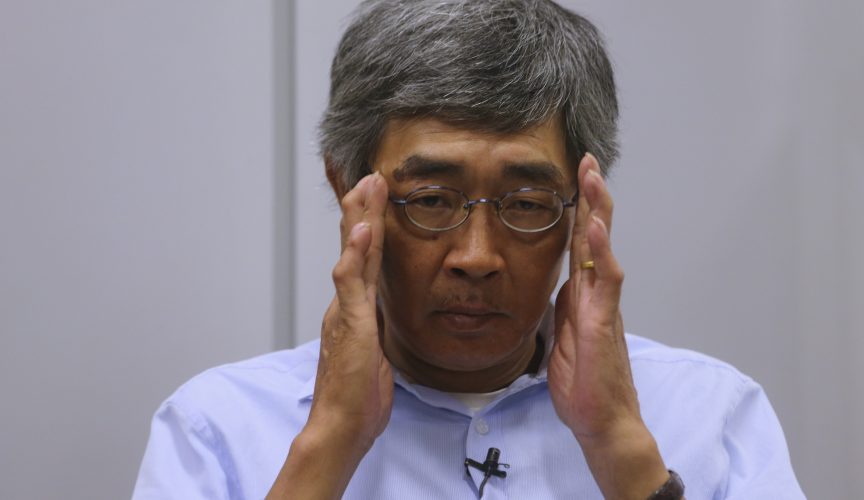
FW: FactWire reporter LAM: Lam Wing-kee, former Causeway Bay Bookstore manager
Lam Wing-kee retrieving hard drive with Lee Po
FW: What was the context of your conversation with Lee Po? How many people were present?
LAM: Him (Lee Po), his wife, and I – three of us. Because the mainland [authorities] demanded me to bring the hard disk back [to the Mainland]. They had arranged for the one surnamed Chan to get the hard disk from the Causeway Bay Books store and give it to Lee Po. I went to get it from Lee Po’s office in North Point. I used that opportunity to chat with him and his wife. At that time, he said someone went up with him [to the mainland].
FW: Did he give details?
LAM: No details. He… (eight second pause) He once said that someone went with him to the mainland. I don’t really remember what happened after.
FW: You didn’t ask further?
LAM: He didn’t seem too keen to talk about it.
FW: Did he say whether his abductor – the one who put him on the seven-seater car – was a mainlander or a Hongkonger?
LAM: Mainlander. I remember he said someone from the mainland went with him.
FW: Outside the Chai Wan book warehouse?
LAM: He didn’t say it was at Chai Wan, nor did he say abducted.
FW: Because at your press conference, you mentioned that Lee Po was brought to the mainland against his will.
LAM: It was very obvious. You could tell from his tone.
FW: His tone? He didn’t say directly?
LAM: His tone. He didn’t say directly. Now I remember, I was just chatting about this with Mr. Sin I don’t know if there are any other devices at his office.
FW: What other devices?
LAM: Devices for listening from the outside.
FW: You mean at Lee Po’s office?
LAM: Yes. I don’t know.
Lam’s family under surveillance
LAM: Yes, I don’t know. I wouldn’t be surprised if they did. Let me give you an example. When I was locked up in Ningbo, they even knew what my son said on his phone calls in Hong Kong, what he was planning to do. They even knew that, and my son was completely unaware. My son was trying to understand my disappearance. He wanted to find some people, like legislators, to help. They could ask me about it instantly.
Mainland minders shadowed Lam upon returning to Hong Kong
FW: When you met Lee Po, how were the two minders who accompanied you back to Hong Kong watching you?
LAM: They were worried about being photographed. We were separated when we crossed the border. (Where were they?) They didn’t tell me [where they were], they didn’t let me see [them]. At that time, I requested… Because I wanted to buy a newspaper, so I told them, because when they crossed the border… When I crossed into Hong Kong, they crossed out of the mainland. There’s a contact point in Lowu with a convenience store next to it. I told them to wait at one of the two convenience stores. But the two of them were afraid to show up. Later, I thought they must have been afraid of being photographed, so they only used SMS to communicate. I later threw away my phone. I was afraid it had a tracking device.
FW: Where did you throw it away?
LAM: At my current residence. I destroyed it and threw it away.
FW: So you lost contact with them after you returned to your residence in Hong Kong?
LAM: Once we crossed the border… [Actually] we didn’t lose contact. They were always communicating with me using SMS. After I crossed the border, I had to first call them. If the phone didn’t work, I was to change my phone to roaming mode in Hong Kong. If it didn’t work, then I was to use SMS. Later, because SMS is more convenient than calling, I used SMS. They asked me where I went, what my location was, when I was boarding the train. They frequently asked me questions via SMS. I don’t know where they were.
FW: When was the last time you saw them? Where were you?
LAM: Shenzhen immigration, Lowo, on the Chinese side.
FW: Did they give you any warnings?
LAM: They warned me many times. (How?) [They warned me] not to contact anyone. They demanded that when I was in Hong Kong, I had to inform them before and after I make any calls, just like in the mainland. If I get any calls I had to inform them and report the content of the calls. They demanded I act the same way in Hong Kong as in Mainland China. It was clear they wanted to control me. They didn’t say, but I understood later on.
Asia Wall Street Journal mentions FactWire’s interview.
FW: When the mainland minders left the mainland, how did they go through immigration? Did they use any special passageways?
LAM: [They went through immigration] as normal. I was going through immigration above, they were below. So I don’t know what happened in there or where they went through immigration.
Lam practiced lines to close police missing person case
FW: You went to the police station to close the case after you returned to Hong Kong?
LAM: At the Lowo immigration. They have border crossing records, so of course the border gate didn’t open for me. Then, immigration officials brought me to a questioning centre. I think it was in the immigration area. Later, they got three policemen who asked me if I wanted to close the case, etc. Before immigration, the two minders already told me many times. They wrote paper slips and made me practice. When the Hong Kong police asked me if I needed protection, if I felt safe, I had to say yes. When they asked me if I needed help, I had to say no. When they asked me if I can talk about the case, I had to say no, that it’s a private matter. They listed these three questions.
FW: Do you still have the paper slip?
LAM: No, I didn’t bring it [today].
FW: So when you entered your Hong Kong Identity Card, you couldn’t go through?
LAM: I couldn’t go through, because my wife reported my disappearance.
FW: So immigration officials took you to see the police?
LAM: To close the case. The first thing they wanted me to do when I returned to Hong Kong was to close the case, because [the case can only be closed] by the missing person himself. I had to first do this step, and I had to do it according to their directions.
Policemen involved with Lee Po case closed Lam’s case
FW: Did the police demand you leave anything behind?
LAM: No. Maybe they saw that I didn’t have any requests. Because my three colleagues before me [went through the same process]. It’s very likely that the three policemen I met also saw Lee Po and the others and were involved with their cases. I could only give the police the same answers because [my colleagues before me] gave the same answers. We were demanded respond this way.
FW: Did the three policemen come find you deliberately or were they just stationed on the border?
LAM: They came to find me deliberately. They were plainclothed. One of them went to Lee Po’s home the day before yesterday (17 June). I saw them.
FW: Somebody called the police after you couldn’t go through immigration? How long did you wait?
LAM: About 20 minutes.
FW: Did the police say which unit they were from?
LAM: I think it was the regional crime unit.
FW: (Was it) Hong Kong Island Region?
LAM: I don’t remember.
Being followed, Lam had change of heart at Kowloon Tong
FW: You destroyed your phone when you returned to Hong Kong. Could you say that you escaped their monitoring in your first two days back in Hong Kong?
LAM: I retrieved the hard disk and computer from Lee Po’s home. They bought a suitcase for me to store [the hard disk]. I planned to follow their directions and return again [to the mainland]. Later, I loitered in Kowloon Tong for about 20 minutes until I finally decided to not return and go public. I had originally wanted to go to my old residence in The Metro City, then I realized someone was following me. I recognized that person. He visited the bookstore more than once. I watched him carefully. He was diagonally across from me. At first, he gave me a look, pretending to be nonchalant. I kept watching him. Maybe he felt that I was starting to suspect him, so he got off the train at the stop. I recognized this one.
FW: Did he come with you to Hong Kong?
LAM: No, but I remembered that he visited the bookstore.
FW: Was it Mr. Chan?
LAM: No, I saw Mr. Chan for the first time in Shaoguan.
FW: I mean the one who bought the bookstore.
LAM: That Mr. Chan, I’ve heard of him, but I don’t know him. (Was he the one following you?) No, that one was only taking orders from above to take ownership of Causeway Bay Books.
Taking care of the hard drive
FW: After you left Kowloon Tong, where were you planning to go?
LAM: To my old residence. Later I went elsewhere, but I can’t reveal where at this time. I took care of the hard drive. The hard drive has the information of readers – names, addresses, phone numbers too.
FW: The hard drive was originally located inside Lee Po’s office?
LAM: They arranged for a Mr. Chan to retrieve the hard drive from Causeway Bay Books and brought it to Lee Po’s North Point office. I went to Lee Po’s office to get it. I had suggested to [personally] retrieve it from Causeway Bay Books, but they were worried that I would be recognized there and cause problems.
Why Lam was directed to retrieve the hard drive
FW: Why didn’t Lee Po bring the hard drive to the mainland? Why did you have to do it?
LAM: They gave a reason once, that because I was responsible for mailing books, the incriminating evidence against me would be stronger if I brought it to the mainland myself.
FW: Lee Po already knew where the hard drive was. All there was left to do was hand it over?
LAM: They already had a soft copy [of the hard drive’s content].
FW: The content is the same?
LAM: The same. At this point, I still haven’t accessed the hard drive. I only brought somewhere to keep it.
FW: So no matter if you have the hard drive or not, they already have the information?
LAM: They told me the most important role of the hard drive was for providing evidence in court. Because software can be written [and forged].
FW: And you had to be the one to bring it back to the mainland?
LAM: Yes, they said the evidence would be stronger [that way].
Minder was bookstore customer
FW: Why don’t we go back to when you were in Kowloon Tong.
LAM: I was on the way home from Kowloon Tong, on the line from Kowloon Tong to (Tseung Kwan O) The Metro City.
FW: How long did that man watch you for?
LAM: On the MTR. I remember he bought books [from Causeway Bay Books] before. It was in the genre of political gossip.
FW: Did he speak Putonghua or Cantonese? Was he a Hongkonger or a mainlander?
LAM: He should be fluent in both Cantonese and Putonghua. I think he is from Guangdong, judging by his looks.
FW: He stopped following you at Kowloon Tong?
LAM: I saw him get off the train. I watched him for a long time.
Losing his minders and deciding to go public
FW: When you were at Kowloon Tong, did you ever think that they might abduct you again?
LAM: After I left Kowloon Tong, when I was about to change trains to go to Lowu, I actually… I didn’t sleep the two nights before. I kept thinking. At that point, I still hadn’t decided. I felt a lot of pressure. Based on my life experience, I knew I should stop and find a place to quiet down. So I decided… (20 second pause) So I decided to smoke a cigarette, but I ended up smoking three. I kept my suitcase in the convenience store next to City University. I bought a bottle of water. When I got my luggage from Bianchi (Caritas Bianchi Lodge Hotel) and took the MTR to Kowloon Tong, I was already observing whether I was being followed. At that time, I couldn’t see [anyone following me]. When I was smoking outside City University, I was looking around and didn’t feel [I was being followed]. My heart was a mess. I made the decision at that moment, because I realized that this case really wasn’t just about me.
Gui Minhai to be tried in September, October
LAM: Actually, I could have handed [the hard drive] over smoothly, because they clearly said… Gui Minhai was to be tried in around September to October. [They clearly said that] after the case is tried, the few of us on bail and pending trial could be released, and the chance of release would be very high. After I handed over the hard drive in the mainland, I just had to return to Shaoguan, do a few hours of volunteering, and that was it. Because they previously paid HK$100,000 severance pay to us via Mighty Current. I believed there was no problem.
When Lam first heard the term “central special investigation task force”
FW: When did you first hear the term “central special investigation task force”?
LAM: In Shenzhen. The person who told me was an assistant of the National Security Bureau in 2013. There was a recording [staff] on the side. He was surnamed Li. The person who interrogated me in Shenzhen in 2013 was also surnamed Li. He should be from the National Security Bureau.
FW: How did you hear the term “central special investigation task force”?
LAM: He (the interrogator) scolded me angrily, because he recognized me, and I recognized him. He said something like, “The central special investigation task force won’t treat you lightly this second time. We are your dictators.” That’s about what he said at that time.
FW: Which department did he belong to?
LAM: When we first met in 2013, he should have been in the National Security Bureau. (Which city?) He was sent from Guangzhou at the time and he spoke very fluent Cantonese. The second time he spoke entirely in Putonghua, no Cantonese. I didn’t hear him speak any Cantonese. (In Nanning?) Ningbo. I think he spent some time living in Ningbo and was used to speaking Putonghua. He wasn’t Cantonese.
Authorities drafted document rejecting lawyers
FW: Was there a National Security Bureau logo on the signed letter to forfeit contacting family?
LAM: I don’t think I saw it. They typed out the conditions on the computer. The most important part of it was to forfeit contacting lawyers and family. [They] made me sign and [record my] fingerprint. There was no date [on the document].
FW: Was it a white sheet of paper?
LAM: Yes. There were a few rows of text on it.
FW: Did the document state which unit [issued it]?
LAM: I think it said “Ningbo Public Security Bureau”
The abductions of Lam Wing-kee and Cheung Chi-ping
FW: According to a report from Sing Tao Daily, you wrote on paper that you didn’t find a lawyer because of your bad relationship with your family.
LAM: They wrote that, not me. FW: You never wrote it?
LAM: They only asked me to sign it.
FW: You went to Shenzhen on Saturday, 24 October. Did you [visit the mainland] to see your girlfriend every Saturday?
LAM: No. I save up my holidays for one month. I go [to visit] once I’ve saved up four days of holidays.
FW: When you used to visit the mainland, was it normal? Did anybody call you especially to ask you to visit?
LAM: No. I heard [my situation] is different from Cheung Chi-ping’s (Mighty Current Media Company Limited business manager). Cheung Chi-ping’s wife called him urgently, claiming there were urgent matters that needed him to [visit the mainland]. Because I remember when I was going to take the four-day holiday, I went to find Cheung Chi-ping to ask him to watch the bookstore.
FW: When you [visited the mainland] on the 24th, did you already know that three [of your colleagues] were abducted?
LAM: I didn’t know. Lui Por [disappeared] before me. Gui Minhai was the earliest, taken away on October 17 in Thailand. I only found out later. I think Cheung Chi-ping was taken away one day before me, in the morning.
FW: What about your girlfriend? When was she taken away?
LAM: I think she was taken away on the same day as I (October 24), because we had planned to meet at Vienna Hotel Dongguan at 1pm that day.
Scripted dialogue to wife reporting Lam’s safety
FW: On November 5, your wife went with Lee Po to Wan Chai Police Station to report your disappearance, but later you called back to Hong Kong asking for the case to be closed.
LAM: That was arranged [by the authorities]. They told me my wife in Hong Kong reported my disappearance. They wanted me to call and tell [the people in] Hong Kong to prove my safety. Of course, [I was made to] read the dialogue from a piece of paper saying I was very safe, she didn’t need to worry, and that I would be staying in Guangdong for a while.
FW: Where were you then?
LAM: I was in Ningbo.
Lam denied being held at Ningbo Cixi Detention Centre
FW: Please have a look at these photos of the Ningbo detention centre…
LAM: Wow, you managed to photograph it?
FW: It was photographed by NOW TV.
LAM: It’s not here.
FW: It’s called Cixi City Detention Centre.
LAM: Are there any other photos? FW: Did your detention location look like this?
LAM: The windows and doors are different. I stole a look, the door had no sign. The colour of the building was different. It was the colour of concrete. The ceiling of the building was higher than Hong Kong [buildings]. I counted six floors. It looked like 12 floors [of a Hong Kong building].
Why Lam was released relatively late
FW: Lui, Zhang, and Lee were separately released in early March before the Chinese People’s Political Consultative Conference and the People’s Congress. You were detained for a particularly long time. Why do you think that is? Did you know about the situation of the others?
LAM: I don’t know. The mainland [authorities] might have been worried that the media will find me after I return to Hong Kong, causing the case to be publicized.
FW: So they distrusted you in particular?
LAM: They might have understood that I’m more well known with Hong Kong media. Before this case, Sing Tao Daily, Ming Pao, and Apple Daily have all interviewed me.
FW: What were the interviews about?
LAM: About books, sometimes it was for a news feature. The mainland [authorities] should know this and were worried I could easily get in touch with the media.
Thought of suicide but never escape
FW: Did you try to win the trust of the mainland authorities so you could return to Hong Kong?
LAM: I was actually very compliant at the time, kind of like resigning myself to my fate. They were kind of trying to control me.
FW: Did you ever think about escaping?
LAM: I thought of committing suicide. Escape was impossible, because I saw there were three gates at the building. There were three [CCTV cameras]. I couldn’t escape. You were guarded 24 hours [a day]. When you leave the room there is a gate in the corridor. Outside the corridor gate there is another gate of the building itself. Outside the building is another gate. How can you escape?
FW: Did your guards wear any uniform? Armed police uniform for example.
LAM: They wore uniforms, but it didn’t say [what unit they were]. I know they were young people, around twenty-years-old. I know they were recruits.
FW: Were their uniforms dark blue?
LAM: They had different uniforms. Sometimes I saw they changed uniforms.
FW: But after you arrived in Shaoguan, did you ever think of escaping?
LAM: How could I escape without my identity card? They confiscated my mainland travel permit. Without it I can’t buy train tickets…
FW: Were you accompanied when you went to Mount Danxia?
LAM: Of course!
Lam asked Democratic Party for help
FW: There is a rumour that the Democratic Party took the initiative and requested the press conference.
LAM: I requested it.
FW: Some have said this is an election stunt for the Democratic Party or pan-democrats. What’s your view on this?
LAM: I’ve never thought of this! I’ll take care of my own business first.
FW: Did the Democratic Party ever stage an Operation Yellowbird style action to rescue you?
LAM: No. I’m now considered a traitor to the mainland [authorities]. I suddenly changed my approach. They always thought I was very compliant, and I always showed my compliance, because at the time I had indeed resigned myself to my fate.
No need to seek political asylum at this time
FW: Finally, do you worry about your personal safety?
LAM: Not right now. FW: Will you seek political asylum abroad? LAM: That step has yet to come, I don’t think it’s needed. If that were a consideration, I would go to Taiwan.
FW: At what stage would you consider seeking asylum?
LAM: Aside from myself, I have family. I have two children, I have a wife who has separated from me, my sister, her children. I will only consider [asylum] if they are harmed. It is not a problem for me.


